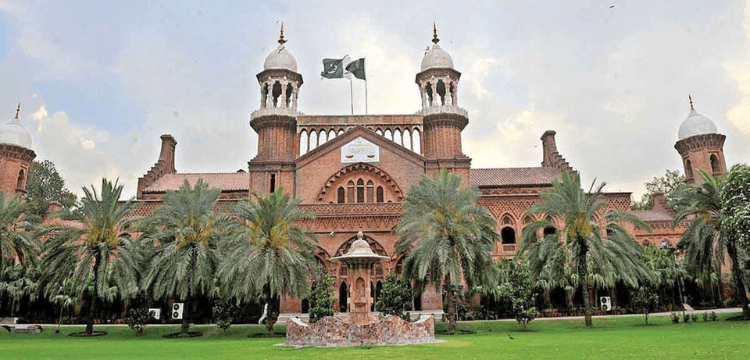[vc_row][vc_column][vc_column_text dp_text_size=”size-4″]Given that, on the Governor Balighur Rehman’s orders, Chief Minister Chaudhry Parvez Elahi “finished the floor test” in the provincial parliament, the Lahore High Court (LHC) questioned on Thursday whether the crisis in Punjab was now over.
A larger bench asked this hours after Elahi managed to win the support of 186 members of the Punjab Assembly during a late-night tumultuous session on Thursday. The panel is currently hearing a case filed by the CM contesting Rehman’s decision to de-notify him as the province’s chief executive.
As the largest province’s chief minister, Elahi was denotified by the governor of Punjab last month in an effort to thwart former premier Imran Khan’s plans to dissolve the Punjab Assembly. The governor stated in his order dated December 22 that the chief minister was no longer in office because he had declined to take a vote of confidence on the designated day and time. However, Rehman had asked Elahi to serve as chief minister until a replacement took over.
Elahi then went before the court, claiming that the action was “unconstitutional, unlawful, and without legal effect.” The court had stated on Thursday that a chief minister should always have the support of the majority of members of the house and had granted Elahi another day as CM.
The attorney general asked the court to incorporate the voting record in the arguments as the hearing got underway today. He said, “The governor won’t have any issues with that. What do you have to say about Elahi taking the vote of confidence, Justice Abid Aziz Shaikh questioned?
In addition, Justice Asim Hafeez enquired as to what would happen if the governor sent out another notification. The AG said, “There wouldn’t be a need for that after the assembly floor [established it was in Elahi’s favour].”
Elahi’s attorney, Barrister Ali Zafar, stated that his client had complied with the governor’s initial directive, which was to conduct a vote of confidence. It is now necessary to revoke his second notification of the de-notification.
Justice Hafeez responded by asserting that Elahi had done so in accordance with Article 137 of the Constitution. The executive authority of the Province shall be subject to and limited by the executive authority expressly conferred by the Constitution or by law made by 2 [Majlis-e-Shoora (Parliament)] upon the Federal Government or authorities thereof in any matter with respect to which both Parliament and the Provincial Assembly have the power to make laws.
Justice Shaikh questioned, “Does this suggest that the subject has been resolved at this point since the floor test has been completed? The judge said that “prima factually, Elahi has taken the vote of confidence on orders of the governor,” adding that “had Elahi taken the vote of confidence voluntarily, the situation would have been different.”
Justice Hafeez emphasised that only the governor can direct the CM to cast the vote of confidence. Barrister Zafar said that the governor could instruct the speaker to call a session for a vote of confidence while arguing against Rehman’s jurisdiction to determine the day and hour of the vote.
The date and time are then chosen by the speaker. Justice Hafeez argued that the court was not authorised to comment on the governor’s directive in this instance. “We only need to issue a court order.”
Justice Shaikh questioned how many days would be optimal to conduct a no-confidence vote at one point during the hearing. Elahi’s attorney responded that the governor should have given his client a term of at least 14 days, but instead only offered his client two days. At the very least, he ought to have provided a seven-day notice.
Justice Hafeez then pointed out that a session might also be summoned on a holiday. He added, “Can the speaker arrange a session within three to four days if a sizable number of assembly members go to the governor and express lack of confidence [against the CM]?
Zafar continued his defence by claiming that the chief secretary was perplexed when the governor issued Elahi’s de-notification order. He asked the governor in a letter how such a notice could be issued without an assembly session as a result.
The lawyer informed the court that the chief secretary thereafter directed the CM to seek legal counsel on the matter. But when the governor requested him to act once more, he sent the notification. I ask that the de-notification orders be revoked, Zafar continued.
Justice Shaikh then argued that the court just needed to determine whether the governor’s alloted time for holding a vote of confidence was accurate or not. The hearing was then postponed until 12:30 PM.
Speaking to reporters outside of court, Barrister Ali Zafar asserted that Governor Rehman had accepted Elahi’s vote of confidence and disclosed that the former’s attorney had still not contested yesterday’s PA proceedings. He insisted that now that the CM had been successful, the governor should revoke the letter announcing Elahi’s dismissal. Speaking on the dissolution of the legislature, Zafar stated that Elahi’s promise to do so was based on an interim order and “was limited till the case proceedings are taking place.”[/vc_column_text][/vc_column][/vc_row]











